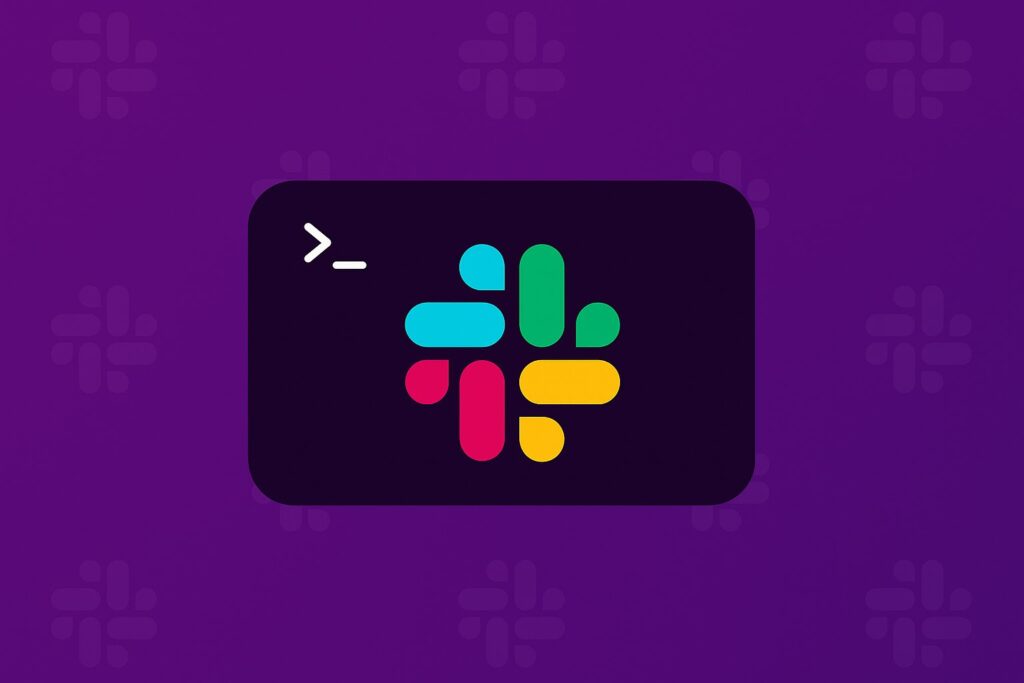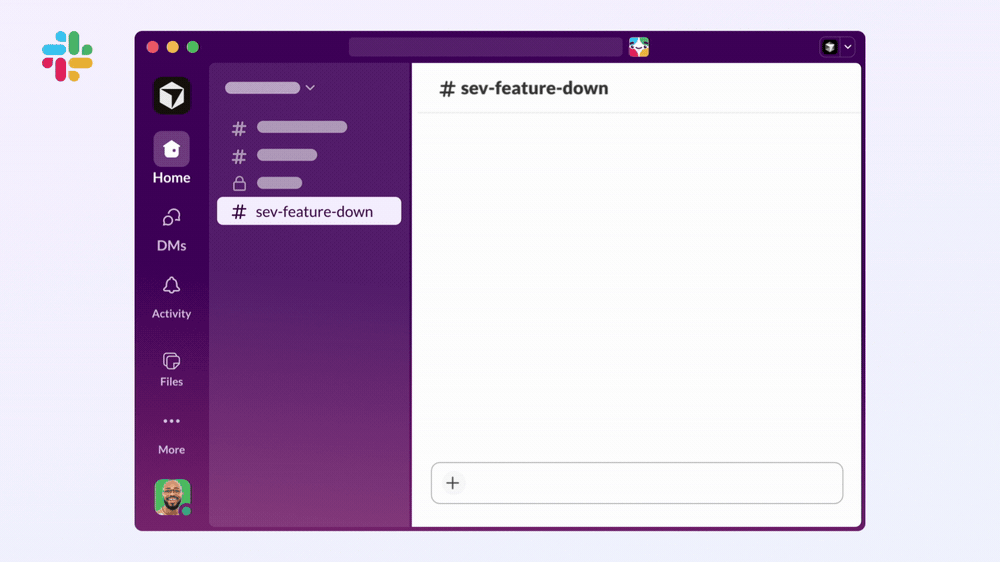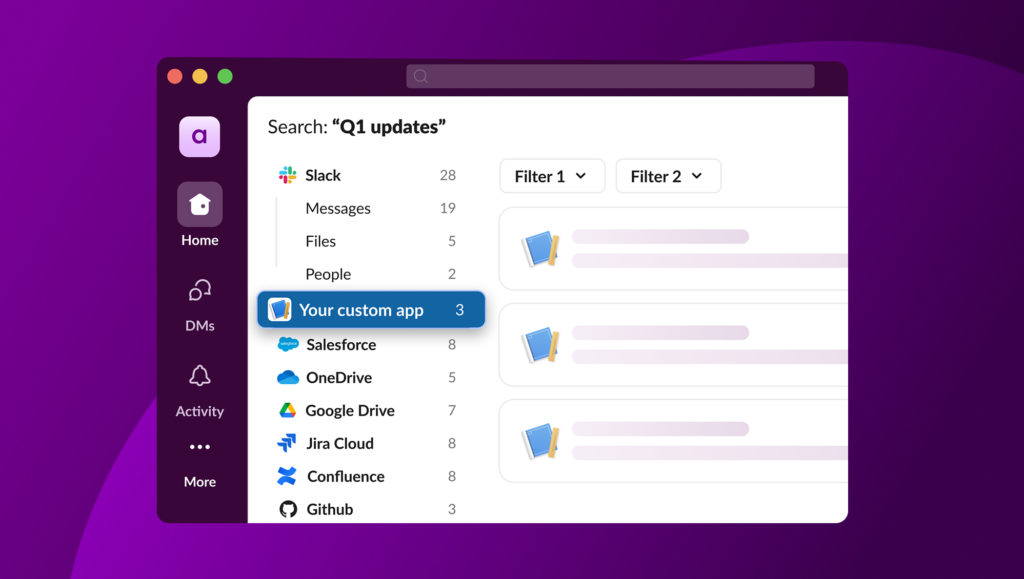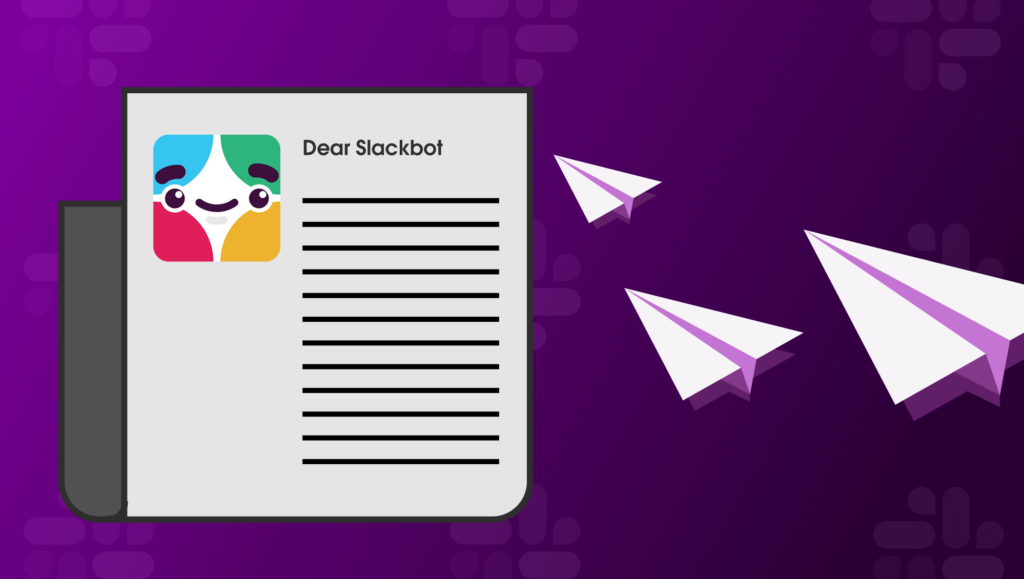Introducing Slack MCP Support, Real-time Search API, and Updates to Terms of Service
Today, we’re unveiling new capabilities that redefine how developers, customers, and partners securely interact with Slack data. At the heart of this evolution are two key innovations: support for the Model Context Protocol (MCP) and the launch of our Real-time Search API. Together, these advancements lay the foundation for building intelligent, contextual AI experiences, without compromising on customer trust or our commitment to interoperability.
We are committed to delivering a modern, secure approach to Slack data access, bringing trusted context to users wherever they work. To that end, we are also making updates to our API Terms of Service, reinforcing strong, transparent guardrails for how apps and agents integrate and interoperate with Slack. With these changes, we’re helping businesses embrace AI confidently, with data protection and trust built in from the start.
Slack MCP Support: Expanding integration capabilities with MCP
As part of Salesforce’s commitment to enabling modern, intelligent, and secure collaboration, we are announcing support for the Model Context Protocol (MCP) as well as developing a Slack MCP server, in close collaboration with Anthropic – creators of MCP. Our MCP support, which will be broadly available this summer, empowers enterprises to build modular, secure AI workflows that seamlessly integrate with their preferred LLMs and agent platforms complementing how teams work in Slack.
To ensure a consistent and enterprise-grade experience, Slack’s remote MCP Server features OAuth authentication that respects existing permissions. The initial set of MCP functions which will be made available are specifically designed to empower AI apps and agents with:
- Rich Data Grounding: Tap into Slack’s conversational and file data for context to generate more accurate, real-time results.
- Contextual Content Output: Deliver insights directly to Slack conversations, keeping teams in their flow.
- Canvas integration: Interact directly with Slack canvases, making content searchable and accessible.
- Enterprise Control: Administrators can choose to maintain visibility and control over how integrations access data, aligned with Slack’s marketplace policies and best practices
Our MCP approach not only enhances interoperability, but also ensures that new AI-driven functions are tailored to improve the way teams work with the platform. We plan to launch MCP support for broad availability in Slack this summer.
The Real-time Search API: Providing safe, real-time, user-level Slack data access
A cornerstone of Slack’s new data connectivity strategy is enabling real-time search access via our Real-time Search API. This allows users to interact with data directly where it resides, without the need to duplicate or move data and permissions between systems. With the Real-time Search API, approved partners and developers can retrieve exactly the data you need from Slack, in real-time, by searching messages and files directly, enabling safe, AI-powered use cases such as federated search and deep research. This API also eliminates the need for large data exports from Slack, keeping customer data secure, while maintaining support for key use cases like permission-based search.
This real-time search approach streamlines workflows and reinforces our commitment to data integrity with integrations into Slack that prioritize customer data protection. The API is currently in closed beta as we are working to refine the experience with the intent to launch more broadly this summer. Follow the Slack developer changelog for updates, https://api.slack.com/changelog.
Updates to our API Program: Enhanced protection for AI powered work
As the Slack platform grows – and as AI capabilities advance – we’re evolving Slack’s API strategy to ensure we continue protecting customer data in line with our longstanding commitments to security, privacy, and responsible processing of data.
To this end, we’re making the following updates to the Slack API Terms of Service:
- Commercial Distribution: Confirming that the Slack Marketplace is the only appropriate channel for commercially distributing apps built with Slack APIs, whether those apps are currently “unlisted” (published outside of the Marketplace) or templatized one-off “custom” apps.
- Data Usage Restrictions: We’re reinforcing safeguards around how data accessed via Slack APIs can be stored, used, and shared.
- API-Specific Terms: We’re providing clearer guidance on how to use certain APIs, such as the Discovery API, responsibly.
Along with these policy clarifications, we’re adding some additional protections to safeguard customer data and ensure proper use of Slack Web API. This is Slack’s general-purpose API suite, used by both Marketplace and customer-built apps to do things like send messages, create channels, and retrieve content from specific conversations. Two specific methods, conversations.history and conversations.replies, allow apps to pull message data from Slack. For apps distributed outside the Slack Marketplace, rate limits will be reduced to 15 messages per request, with up to 1 request per minute. The new rate limit helps restrict the bulk exfiltration of data by unvetted third-party applications, while still allowing for development and testing. Applications published in the Slack Marketplace and existing internal customer-built apps created before May 29th, 2025 will keep their current, higher rate limits. Customers building custom applications for internal use have no restrictions on accessing their Slack data, as has always been the case.
Marketplace apps are reviewed by Slack and subject to thoughtful use case guidelines designed to protect customer data and the Slack ecosystem. All third-party integrations wishing to be listed must undergo mandatory review and approval through our App Marketplace, ensuring every connection meets our security standards. This process bolsters customer confidence in their tools and helps ensure the security of the Slack ecosystem.
Trust drives everything we do at Slack. These changes are designed to better protect customer data, uphold the integrity of Slack’s platform, and ensure its ecosystem continues to grow in a way that’s open and responsible.
Availability and More Information
For more information on Slack APIs and building a Slack application you can visit https://api.slack.com/.
For updates on the latest Slack developer capabilities and announcements you can visit https://slack.dev/blog/.
For updates on our Slack API Terms of Service you can visit https://slack.com/terms-of-service/api.




